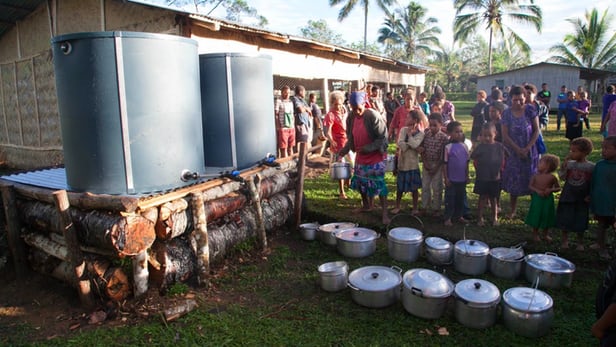
Breaking News
 BREAKING: Federal Agents Descend on Suspected Somali Fraud Sites in Minneapolis (VIDEO)
BREAKING: Federal Agents Descend on Suspected Somali Fraud Sites in Minneapolis (VIDEO)
 BREAKING: Federal Agents Descend on Suspected Somali Fraud Sites in Minneapolis (VIDEO)
BREAKING: Federal Agents Descend on Suspected Somali Fraud Sites in Minneapolis (VIDEO)
 Aargh! Letters of marque would unleash Blackbeard on the cartels
Aargh! Letters of marque would unleash Blackbeard on the cartels
 How a Barter System Could Sustain Communities During a Supply Chain Collapse
How a Barter System Could Sustain Communities During a Supply Chain Collapse
Top Tech News
 EngineAI T800: Born to Disrupt! #EngineAI #robotics #newtechnology #newproduct
EngineAI T800: Born to Disrupt! #EngineAI #robotics #newtechnology #newproduct
 This Silicon Anode Breakthrough Could Mark A Turning Point For EV Batteries [Update]
This Silicon Anode Breakthrough Could Mark A Turning Point For EV Batteries [Update]
 Travel gadget promises to dry and iron your clothes – totally hands-free
Travel gadget promises to dry and iron your clothes – totally hands-free
 Perfect Aircrete, Kitchen Ingredients.
Perfect Aircrete, Kitchen Ingredients.
 Futuristic pixel-raising display lets you feel what's onscreen
Futuristic pixel-raising display lets you feel what's onscreen
 Cutting-Edge Facility Generates Pure Water and Hydrogen Fuel from Seawater for Mere Pennies
Cutting-Edge Facility Generates Pure Water and Hydrogen Fuel from Seawater for Mere Pennies
 This tiny dev board is packed with features for ambitious makers
This tiny dev board is packed with features for ambitious makers
 Scientists Discover Gel to Regrow Tooth Enamel
Scientists Discover Gel to Regrow Tooth Enamel
 Vitamin C and Dandelion Root Killing Cancer Cells -- as Former CDC Director Calls for COVID-19...
Vitamin C and Dandelion Root Killing Cancer Cells -- as Former CDC Director Calls for COVID-19...
 Galactic Brain: US firm plans space-based data centers, power grid to challenge China
Galactic Brain: US firm plans space-based data centers, power grid to challenge China
Aid Innovation Challenge - Finalists announced

While figuring out how to send mankind to Mars might be the hot topic of the day, there are still plenty of problems to solve on Earth, not least those presented by various humanitarian crises erupting across the globe. That's where the Aid Innovation Challenge comes in.
Part of the annual global humanitarian and development aid event AidEx, it is a Dragons' Den-style competition aimed at finding the next big invention that can help improve the way aid is delivered.
Here are the four finalists from this year's competition who will be taking to the stage in Brussels on November 16.
The problem: Finding access to clean drinking water is one of the biggest problems during an emergency crisis. International guidelines suggest that each person should receive between 7.5 and 15 liters a day to cover their basic needs. However meeting these minimum standards is often difficult water sources sometimes miles away, and refugees lacking the means to store water at their shelters. Conventional water tanks, while useful, are expensive and heavy, and do not lend themselves to an agile setup.



